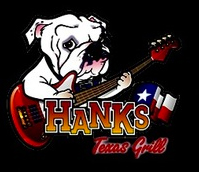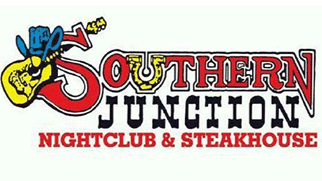Billy Joe Shaver, Aug. 16, 1939—Oct. 28, 2020

Billy Joe Shaver ended each set following his son’s tragic death in this prayerful position.
Mary Jane Farmer, Scene In Town, Adapted by a feature written for and printed in Buddy Magazine and a press release from Cary Baker of Conqueroo. Photos by Mary Jane Farmer
Mary Jane Farmer’s input, photos by Mary Jane
Billy Joe Shaver, the Texas singer-songwriter who was a major key player in the Outlaw Country movement, ‘crossed that river’ Wednesday morning, Oct. 28, 2020, with some sources reporting he had been ill for a while, and others saying he had a massive heart attack. Regardless, the world and Texas lost a true treasure!
Billy Joe once told me — and I’ve treasured his words ever since — “I don’t ever count on tomorrow. We’re all just here for today, but while I’m here, I’m going to write and play. I’m in pretty good shape to do it.”
He may sing “It’s hard to be an outlaw who ain’t wanted any more,” but there’s certainly no one wanted around any more than Billy Joe Shaver. He gave actualism to the Tom Petty line, “…you never slow down, you never grow old.”
Shaver said he had lost count of just how many records he recorded. Wikipedia lists 22 records and three compilations including a 2007 “Greatest Hits” CD. That’s got to be somewhere close to an accurate count. The first one was in 1973, the onset of the Progressive County/Outlaw/Redneck Rock switch from Nashville style country to Texas country music.
Octogenarian Billy Joe released yet one more CD when he was 75 years old, “Long In The Tooth.” This project holds 10 new songs, all of which Billy Joe wrote, some alone and some with co-writers Ray Kennedy and Gary Nicholson, who also produced the project, and the title cut with Paul Gleason.
Shaver was one of those, as was his forever-friend Willie Nelson, in Nashville in those late 1960s and early 1970s years. He had tried to hitchhike to California, but somehow got a wrong turn and was let off in Memphis, and the next ride he got took him into Nashville, reportedly in the back of a cantaloupe

Billy Joe Shaver and his guitarist, sidekick, and oft chauffeur Jeremy Woodalll.
truck. That was in 1965. He got a job songwriting, with Bobby Bare’s folks and for $50 a week. Soon Waylon Jennings, who became a co-writer with him at times, released a record, “Honky Tonk Heroes,” filled with songs Shaver had written or co-written. That was the same time, 1973-ish, that Shaver released his own first project, “Old Five & Dimers,” and hit the scene as a
performer as well as a songwriter.
And it was those two, along with Nelson, Kris Kristofferson, Guy Clark and a few others who were, basically, fed up with trying to fit into the Nashville mold. They, many of them, outlaws they were called, moved back to Texas where they could make the music they wanted to make.
Outlaws? Does the term ‘outlaw’ get thrown around too much these days? Shaver answered that question, “There’s no way to control who uses what terms. But when we came into Nashville, 1966, when the revolution started, we were more like outcasts than outlaws. We were doing something completely different. We didn’t want to squeeze into those sequined suits. We wore blue jeans and stuff and wrote about getting’ down to the truth. I know, it’s quite a platform, but it’s proven itself to hold up.”
It was mid-70s, too, when Elvis Presley recorded “You Asked Me To,” co-written by Shaver and Jennings. Billy Joe said he didn’t know about the recording until after Presley’s death. “Someone told me, and I looked on the record that Elvis put it out on. My name wasn’t on it (the credits), only Waylon’s. I had the song pretty much written and kind of gave it to Waylon, and he put it in a different company than BMI or ASCAP (licensing). I never got any money from that recording.”

Jeremy Lynn Woodall
Shaver said that Elvis actually recorded the song twice, and that he liked Elvis’ versions of it. “He had his own style and it was good.”
Billy Joe never met Elvis, nor did he meet another superstar who recorded another of his songs, “Old Five & Dimers,” in the 70s. “He did it really well, too, two versions of it.” Again, Shaver said, he didn’t make any money off those recordings. “But I’ve not ever been one to jump on top of a desk and start screaming about it. I don’t know, it’s all right.”
That was sort of common, especially in those days, Shaver explained. “A lot of things didn’t get signed. But I wasn’t writing for the money. Music is the cheapest psychiatrist there is, and I still need one of those. I live to write songs.”
He added, though, that he trusted people. “Sometimes, I trusted the wrong people. You’d think I’d care, but I don’t care. If I were a wealthy person right now, I wouldn’t have written the songs I have written. I’m in good shape. It makes me feel good to write what I write, and it’s built my character. I’ve got stuff that money can’t buy.”
One of that “stuff” is his faith. Billy Joe has not had an easy life, by anyone’s standards. His father left his mother before he was even born, and it was primarily his grandmother who raised him. He gives her, Birdie Lee Watson, the glory for giving him a “good Christian raising.” That faith kept him steadfast when he lost two fingers in a work-related catastrophe, and forced him re-learn guitar pickin’ in his own style. And in the one year that he lost his mother, his wife, and his son Eddy, faith kept him going through the grief. Since then, he has recovered from a heart attack and worked through legal problems and criminal accusations, all the while never letting up.
He includes that faith in his songs, too, powerful and yet down-to-earth lyrics like, “He told the truth and they hung Him up to die. The Son of God, who created you and I. He said it in the Good Book, letters in red. But we keep on forgetting every word He said. Jesus Christ hung on the cross for you and I.”
Billy Joe ended his shows, every time after Eddy’s death, by removing his hat and kneeling with his head bowed. The band respected that by remaining still and quiet until their lead singer stood up again.

Billy Joe Shaver in an oft-used on-stage stance, a favorite with his crowds. He really wasn’t challenging anyone…
Oh, yeah — there’s another relative Billy Joe was pretty proud of. “My great-great-great-great-grandfather, Evan Thomas Watson, was one of the three men who formed the Republic of Texas. I’m kind of proud of him. There’s a monument in Austin for him and the other two fellows. It was a hard job. There were a lot of outlaws and gangsters and other kinds who ran around Texas back then, and they started making sense out of it.”
Billy Joe laughs a lot and easily at earlier experiences and smiles when remembering old friends.
About Fort Worth long-timer Jerry Max Lane: “Oh, Gawd. We used to run around together. And he and I wrote a song together, ‘Poetic Justice.’ I still love him, he’s a good old boy, a good’n.”
And about playing at the Kerrville Folk Festival, and then playing around the festival campgrounds with another long-time friend, the late Townes Van Zandt. “It came a rain, like it does so much of the time at Kerrville (Festival). It was a long strip of mud like, that went downhill. We started sliding down it.” (KFF calls that area ‘Sudden Creek’ because of … well, obviously…) Billy Joe laughed hard, that kind of laugh that comes from the belly up, about that one. “I went back once, to see Kinky Friedman play.”
During the past years, when Billy Joe was aging, his good friend and lead guitarist, Jeremy Woodall, drove him to his shows, sometimes the two of them and sometimes they rode in a tour bus. Either way, Jeremy was by his side.
It was a little harder to laugh when at 75, about the touring, but Shaver was touring still. He said he was always glad to return to Texas, to feel that native Texas feel. But, in spite of his fame, he preferred playing the smaller clubs. Why? “Because they are full of people just like me. I fit well in those clubs and pack them, of course. I like the people in the small clubs. When you get up on those big stages, it’s different. You don’t get to see the people you are playing for, just see the bright lights.”

Billy Joe Shaver and his full band
Conqueroo Press Release — More about Billy Joe Shaver
Shaver’s hardscrabble songs reflected his often-tough life. Born in Corsicana, Texas, on Aug. 16, 1939, Shaver was raised mainly by his grandmother, Birdie Lee Watson. His father left before Billy Joe was born and his mother had a job in Waco, some 60 miles away.
As a youth, he spent more time working on family farms than in school. As he wrote in his song “Fast Train,” “I have an eighth-grade education … I got all my country learning… picking cotton, raisin’ hell and baling hay.”
Shaver left home at 16 to serve in the Navy and afterwards took a series of jobs, including one in the professional rodeo. After losing several fingers in a sawmill accident, he decided to do what he really loved to do: write songs. He said he had to re-learn how to pick a guitar, so that was yet another challenged he met and mastered.
Shaver’s debut album, the Kristofferson-produced Old Five and Dimers Like Me, came out in 1973 on the Monument Records. Shaver went on to release more than 20 albums for such labels as MGM, Capricorn, Columbia, Zoo/Praxis, New West, and Sugar Hill Records. His 2007 album, Everybody’s Brother (Compadre Records), earned him a Grammy nomination for Best Southern/Country/Bluegrass Album and his most recent release, 2014’s Long in the Tooth (Lightning Rod Records), was his first to chart in Billboard’s Top Country Albums.
While he experienced many successes in his life, Shaver also had more than his share of tragedies. In 1999, he lost his mother to cancer as well as his wife, Brenda, a woman he married three times (and divorced twice). On December 31, 2000, his son Eddy died of a heroin overdose.

Courtesy photo
Shaver had teamed up with his guitarist son for several highly-praised albums in the 1990s. Then, on July 4, 2001, Shaver suffered a massive, and nearly fatal, heart attack while performing on stage. He later received some unwanted notoriety when, in 2007, a bar argument wound up with Shaver shooting (but not killing) the other man. Shaver was acquitted of charges, and wrote about the incident in the song “Wacko From Waco.”
One of Shaver’s signature songs, “Live Forever,” was performed by Robert Duvall in the film Crazy Heart. A long-time admirer and friend, Duvall cast Shaver in his 1996 movie The Apostle, and Shaver later acted in such films as Secondhand Lions, The Wendell Baker Story, and Bait Shop. Duvall also produced the documentary A Portrait of Billy Joe.
Shaver’s music attracted many illustrious admirers over the years. Johnny Cash, who covered Shaver’s “I’m Just an Old Chunk of Coal (But I’m Gonna Be a Diamond Some Day),” called him “my favorite songwriter,” while Willie Nelson, a frequently Shaver collaborator, declared that “Billy Joe is definitely the best writer in Texas.” Bob Dylan not only has performed Shaver’s “Old Five and Dimers Like Me” in concert, but even name-checked him in his tune “I Feel a Change Comin’ On.”
Shaver’s song catalog has been classified, in All Music, as “among the greatest in the whole history of the (country) genre. The Washington Post once noted, “When the country outlaws were collecting their holy writings, Billy Joe Shaver was carving out Exodus.” Shaver himself said, when talking about songwriting, that “when you write songs, and you write good songs, people will always remember you. Words will always outlive us. And if your name is attached to those words, you’re gonna live forever.”
Category: *- Features












